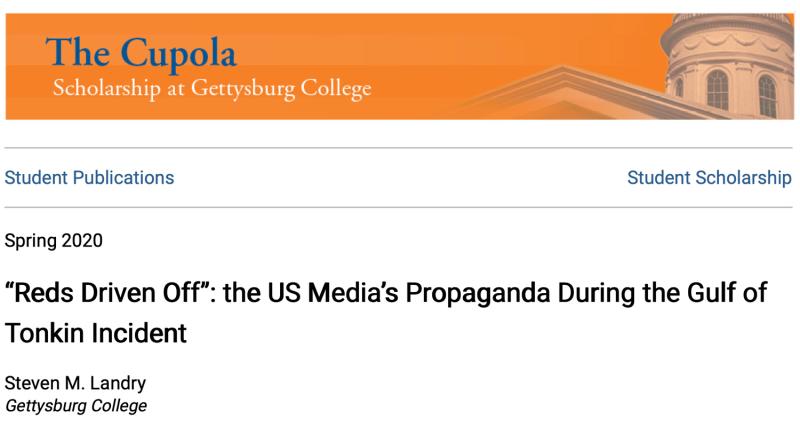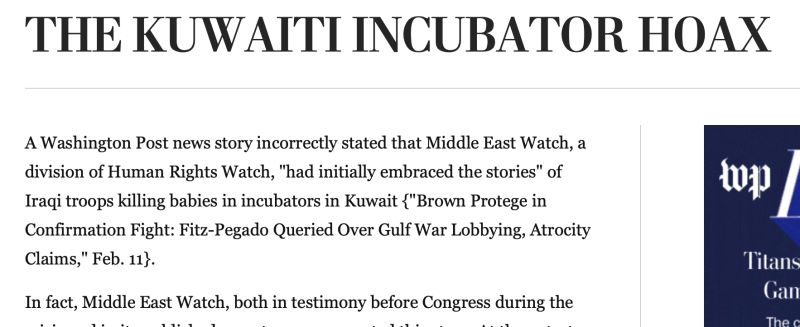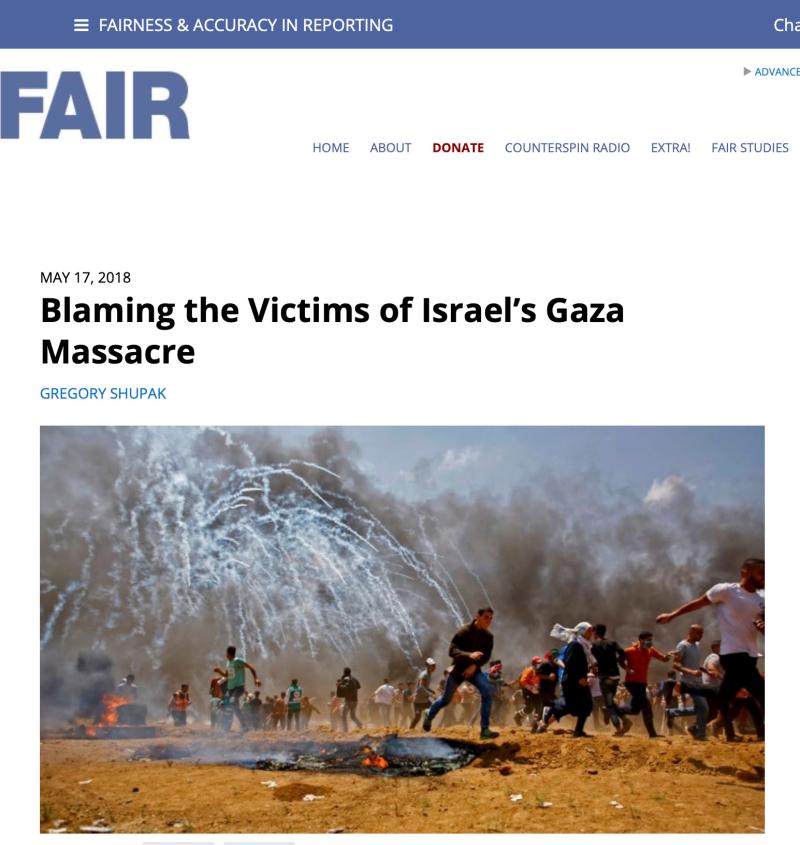Issue:
November 2023
As always, in war, truth is one of the first casualties
The carnage in southern Israel and Gaza had barely begun before a waggish social media commentator observed that, in Britain at least, the BBC would soon become the story.
The Israel-Hamas conflict has arguably illustrated this truism with more venom than is usually reserved for “Auntie” – both venerated for the quality of its war correspondence and vilified for its perceived bias.
And so it was that in the opening days of the war, BBC presenters and reporters referred to Hamas not as “terrorists” but as a militant organization, and its active members as “gunmen” or “fighters”.
“Terrorism is a loaded word”, explained veteran BBC correspondent John Simpson. “It’s simply not the BBC’s job to tell people who to support and who to condemn - who are the good guys and who are the bad guys.”
That wasn’t enough to stem a tsunami of furious criticism. The response online has been such that the corporation is now offering extra support to staff who face abuse and attacks, in addition to those dealing with distressing footage from the conflict.
But the BBC’s coverage of Hamas’s slaughter of Israeli and other civilians on 7 October and the death and destruction unleashed since in the Gaza Strip – where half the 2.4 million population is aged under 18 – is about far more than editorial decisions being taken in London W1.
It is part of a much wider, increasingly rancorous debate about the relative value of Palestinian lives set against those of Israelis; about the in-built bias of media organizations; and pressure on us, as consumers of online media, to pick a side in a world where nuance in war reporting, especially in a region as combustive as the Middle East, risks going the way of the newsroom ticker machine. And of course, it’s about the internet, the conduit for a deluge of hate and ignorance masquerading as an alternative to the mainstream media.
The Nobel peace prize winner, Maria Ressa, said: “Without facts you can’t have truth. Without truth you can’t have trust. Without all three, we have no shared reality, and democracy as we know it – and all meaningful human endeavours – are dead.”
The origins of the famous adage that truth is the first casualty of war are unclear, but everyone understands its import: disinformation is often the first weapon deployed in conflict.
From British tabloid stories that Germans made soap from the bodies of dead soldiers in World War I to claims – debunked but still widely believed – that Iraq helped orchestrate the terrorist attacks on the U.S. on September 11, 2001, the information war has played out in the mass media for over a century.
One of the best ways to elicit emotional responses and rally a reluctant public around wars in distant lands is to stoke stories of atrocities by the other side. Hence, the Kuwait Incubator Hoax, when invading Iraqi troops were accused in 1990 of killing infants as they slept in Kuwaiti hospitals.
This story, amplified by then President George H. Bush and a compliant media, inflamed public opinion and helped erase doubts about the wisdom of the Gulf War. Two years and a mountain of (mostly Iraqi) corpses later it emerged that it had been cooked up by a PR firm hired by the Kuwaiti government.
Given this long history of distortion and manipulation and what media analysts call “atrocity propaganda”, journalists ought to be wary. Take the story that emerged days after Hamas militants invaded southern Israel on October 7. Among the 1,400 civilian murders quickly attributed to Hamas were 40 beheaded infants at the Kfar Aza kibbutz.
The decapitations were reported across the world’s top media and spread like wildfire on cyberspace. In the 24 hours after it emerged, Marc Owen Jones, a Qatar-based scholar, counted 44 million impressions and over 100,000 reposts on X (formerly known as Twitter). President Joe Biden said he had “seen pictures” of the babies. His statement was later retracted by the White House.
Hamas’s reputation for brutal, nihilistic violence made it easy for millions to believe the story was true, but it remains unverified. In the absence of a definitive independent account, the story has mutated into propaganda, with supporters on both sides of the conflict using it to incite fear and loathing against the other.
Often, the truth emerges much later. When veteran journalist (and FCCJ press-freedom winner) Shireen Abu Akleh was shot dead in the West Bank in 2022, the Israel Defense Forces initially blamed Palestinian gunmen. And independent probes by the UN High Commissioner for Human Rights concluded she has been killed by Israeli soldiers, almost certainly deliberately.
The Israel-Palestinian propaganda war is one of the most studied in history and the scholarly consensus is that Israel holds the upper hand, at least in the United States. “The American media’s coverage of Israel tends to be strongly biased in Israel’s favor,” conclude John Mearsheimer and Stephen M. Walt in a the widely cited The Israel Lobby and U.S. Foreign Policy (2007).
Many have pointed to double standards. “As in the rule of properly sanitized history,” writes Noam Chomsky in Blaming the Victims: Spurious Scholarship and the Palestinian Question (2001), “Palestinians carry out terrorism, Israelis then retaliate, perhaps too harshly. In the real world, the truth is often rather different.”
Across the Middle East, however, Israel fights a losing battle. Many Arab outlets predict that the Israeli state is heading for civil war, collapse or, as the pro-Hezbollah Lebanese daily Al-Akhbar said recently, sliding into fascism. Al-Jazeera (Shireen Abu Akleh’s employer) regularly challenges the western narrative, currently asking: “Why does the U.S. not support a ceasefire in Gaza?”
Days after the Hamas attack on southern Israel, mainstream media organizations faced a backlash from those who believed they had too eagerly regurgitated Hamas claims that the bombing of the Al-Ahli Arab Hospital in Gaza was the work of a vengeful Israel, which denied ordering the attack.
The true picture was, as ever, far murkier. Evidence mounted that the bombing, which did not appear to have caused as much damage as first reported, could have been the result of a botched rocket attack from inside Gaza by Palestinian Islamic Jihad – a theory also supported by the U.S. and Britain, while Arab states continue to point the finger at Israel.
Polarized media
Organizations like the BBC operate in a world there the battle lines of perception have already been firmly drawn, both among the general public and inside media organisations themselves. The polarization is worsened by the internet, where people quickly divide into tribes.
Inevitably, BBC management and senior journalists have been forced to walk the well-trodden path of contextualising the licence fee-funded broadcaster’s choice of language in the face of accusations from a baying online mob that it was an apologist for terrorism.
“We regularly point out that the British and other governments have condemned Hamas as a terrorist organisation, but that's their business,” said Simpson. “We also run interviews with guests and quote contributors who describe Hamas as terrorists. The key point is that we don't say it in our voice. Our business is to present our audiences with the facts, and let them make up their own minds.”
Ascribing readers and viewers the agency to decide for themselves has an almost quaint feel to it.
More than 20 years have passed since George W Bush issued his demand, nine days after Al Qaeda attacked New York, for the world to decide whether “you are with us, or with the terrorists”. But it speaks to the hard choices we face now in wanting “good” to prevail - for civilians in Gaza not to be deprived of food, water and heat, for its hospitals not to turn into mortuaries for children, for young Israelis not to be gunned down at a pop festival, for thugs not to converge on a Russian airport in search of Jewish passengers.
That is no easy task, given the ferocious second front that has opened up in this war in newspaper and TV reporting and on poorly regulated social media platforms, few of which truly add to our understanding of a long-running, complex conflict, at least among many of us in the West.
While journalists and cartoonists try, and occasionally fail, to address the conflict without offending one side or the other – sometimes paying for their oversight with their jobs – it is worth remembering that truth is not the only journalistic casualty of war.
Towards the end of October came a reminder of how so many of our colleagues put themselves in harm’s way. Who can forget coming across online images of Al Jazeera Arabic’s Gaza bureau chief Wael al Dahdouh broadcasting hours after learning that his wife, 15-year-old son, 7-year-old daughter and grandson were all killed in an Israeli air raid?
According to the Committee to Protect Journalists, at least 31 journalists have been killed covering the conflict, still only into its third week. That is the highest death toll among media workers in Israel and the occupied territories since the committee began tracking journalist deaths in 1992, according to NPR.
After the March 2011 triple meltdown at Fukushima Daiichi nuclear power plant, the authors of this article received emails and messages – often from anonymous senders – accusing us of simultaneously doing the bidding of the anti-nuclear movement while in the pay of Tokyo Electric Power and the Japanese government. Our conclusion: we must be doing something right.
In the same way, there’s reason to be encouraged by a breakdown of viewer complaints about the BBC’s coverage of the Israel-Gaza war. Of the 1,500 complaints it had received nine days after the start of the war, the number claiming its reporting has been biased against Israel and those saying it was anti-Palestinian were evenly split.
At least the BBC has standards. Online, it is a free-for-all. Hamas livestreamed some of its murders and has vowed to broadcast its execution of hostages.
Israel has flooded social media, “pushing dozens of ads containing brutal and emotional imagery of the deadly militant violence in Israel across platforms such as X and YouTube. “Israel’s attempt to win the online information war is part of a growing trend of governments around the world moving aggressively online in order to shape their image, especially during times of crisis,” Hailey Fuchs, Liv Martin and Clothilde Goujard wrote on the Politico website.
Arguably the best advice, both for journalists and their audiences, came from the former editor of the Guardian, Alan Rusbridger, who wrote of the pitfalls of condemning one side without appearing to excuse the other.
“The modern polarisation of political debate assumes that you have to sign up to one camp or the other,” Rusbridger wrote in Prospect magazine. “But I suspect most people feeling horror-struck by what they’re currently seeing in Gaza were equally disgusted by the atrocities committed by Hamas on 7th October.”
We recoil at the daily images of another block of buildings razed to the ground by Israeli bombs in Gaza and the blackened bodies of children being carried out of the rubble. We are sickened by footage of the funerals of Jewish men, women and children butchered on 7 October, and the pain etched on the faces of those whose loved ones have been taken hostage by Hamas.
As Rusbridger argues, the conflict “is not either/or”.
If we must pick a side, our collective humanity would be a good place to start.
David McNeill is professor of communications and English at University of the Sacred Heart in Tokyo, and co-chair of the FCCJ’s Professional Activities Committee. He was previously a correspondent for the Independent, the Economist and the Chronicle of Higher Education.
Justin McCurry is the Japan and Korea correspondent for the Guardian and the Observer in London, and author of War on Wheels: Inside Keirin and Japan’s Cycling Subculture (Profile Books 2021).




